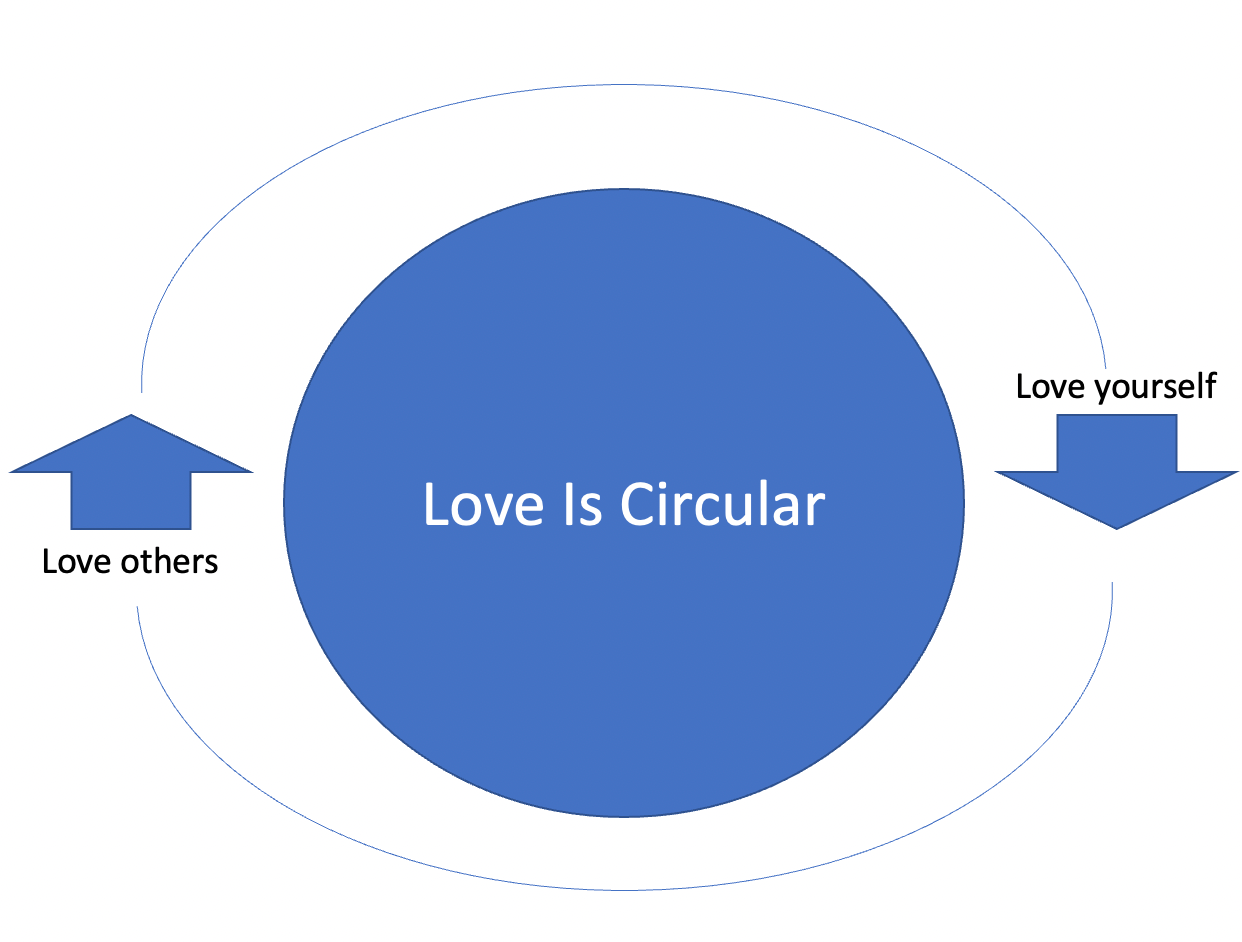Why We Must Learn to Lead with Love
Love is a verb. It’s an action. A conscious choice. Love is a practice, just as personal care, and meditations, or eating, and learning.
As a leader when you practice love for others, you reflect a commitment to practicing love. This commitment starts with the relationship you have with yourself.
That relationship can greatly be enhanced as you learn about other great leaders, and examples of love.
As you learn more from those great examples, you realized that loving others requires being able to love yourself first, and that the more you love others, the more you are practicing loving yourself.
“Love is circular. As you practice it with others, it returns to you, and as you practice it with yourself, you can extend it to others.”

An authentic leader’s ultimate aspiration is to love deeply those who choose to work with them, to collaborate with them, and to co-create with them.
Love is a unifying force that helps you overcome all kinds of obstacles.
Many companies are facing economic challenges right now, and how they deal with everything can be an expression of love, or fear.
“Fear and love cannot co-exist. We are either expressing one or the other in all that we do.”
Leaders who practice love, are easy to emulate and work with. One of my lifetime heroes is Jesus. He embodied all the principles of outstanding leadership.
His famous words found in the NIV Bible, “Love your neighbor as yourself”, are often the most misunderstood words of all time.
The focus often seems to be on loving thy neighbor, but after more careful study of Jesus’ life and teachings, you can’t help but conclude that the formula expressed in his famous quote must include loving yourself.
The key reason why Jesus embodied such love, was because of his relationship with God. The source of Jesus’ love that extended outward to everyone he met, came from the relationship he had with God, the source of all love.
Weather you believe in God or not, is irrelevant to this discussion, the fact remains that all of us need to have a source of love for ourselves, to be able to extend that love for others. God is the most powerful source of love for many.
To make the point, please ask yourself one simple question:
Can I give what I don’t have?
No, you can’t. You can’t love others if you first don’t love yourself. You can’t lead others with love if you first don’t lead yourself with love.
The follow up question to ask yourself is:
What is the source of my self-love?
Loving yourself is the key to the 8th principle of an authentic leader, in my upcoming book “Emotionally Aware Leadership”.
When it comes to tapping into the most abundant source of love, you simply can’t do better than the Creator of the universe.
Yes, we make mistakes. Yes, we are often self-serving in life’s dealings. Yes, we are not always easy to talk to. Yes, we often say things that upset others. Yes, we are flawed in so many ways. Yet we are also capable of so much compassion, empathy, and love.
To embody love as a leader, we must open ourselves to grow through honest self-assessment.
No matter how brutal the self-honesty may be in revealing aspects of us, there is no excuse or good reason for not practicing self-love.
Sadly, there are a lot of people loathing and self-condemning themselves every day. This is the opposite of self-love, this is self-hate.
Stop. Breathe. Think. Accept that you are just an imperfect human and love yourself just as you are, but keep being committed to growing through your challenges, negativity, and traumas.
When you make this a practice, you’ll have more compassion, care, and love for those you lead, those you interact with, and those who also — much like you — are not perfect.
Only through the practice of self-love can you love others, and in the practice of love, we step into a leadership role that becomes a calling in life, and a source of fulfillment in our lives.
Leading with love is about people. Caring for people. Respecting people. Accepting people and being inclusive of all people. Doing all that we can to make people’s lives better, is leading with love.
The benefits of practicing leading with love are also evident in organizations that are highly engaged, have little to no churn, handle difficulties with a united front, and also enjoy outstanding success.
There is quantifiable ROI associated with leading with love. However, the greatest benefit is personal.
“Even with all the challenges that may come our way over the years, leading with love is truly the only way to experience a fulfilling life.”

